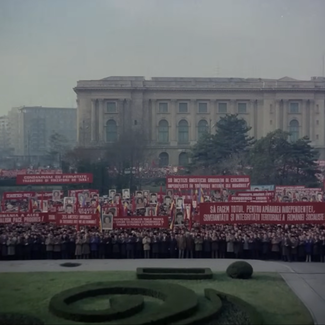Excursion
9. 10. 2024, Kulturni dom Nova Gorica (Nova Gorica) at 18:00
This year the festival Tribute to a vision dedicated the section Excursion to the Romanian production, especially focusing on short films. The Romanian cinema, with some exception like the animations of Ion Popescu-Gopo, has remained unknown to a large part of the international public for all the 20th century. It’s at the beginning of the 2000s that some new Romanian authors started to emerge in the international festival environment thanks to some revolutions of the national productive system.
In 2000 the ONC – Oficiul Național al Cinematografiei (Romanian national film office) is transformed in CNC – Centrul Național al Cinematografiei (Romanian film centre), an institution under the control of the ministry of culture1. This new reality began to offer funding for filmmakers on the basis of bi-annual contests. However, a big part of the funding continued to remain in the hands of the big names in Romanian cinema. The turning point came in 2002 when a group of movie director singed a letter in which they point out the most critical aspects of the CNC’s works and asked for greater funding for university or independent projects by young authors. In the same years the production environment begins to diversify with the birth of various new production societies2. This change creates a productive landscape in which the everyday stories of the people living in post-communist Romania begin to proliferate in a cinema that often, despite his strong realism, is characterized by ironic and surreal elements, typical of the country’s literary and theatrical production3. Young Romanian directors of the early 2000s thus began to enter the international film scene, winning several international awards. Thus began the phenomenon known as Noul val românesc (Romanian new wave).
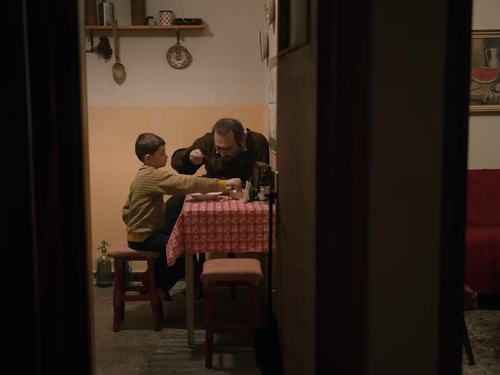
The production of the exponents of this phenomenon is focused on the problems related to the changes that have affected Romanian society after the fall of communism. One of the clearest examples of this trend is Zapping, a short film directed in 2000 by Cristian Mungiu and focused on the problems of television consumption. The communist dictatorship, especially in its late phase, had been very punitive towards this medium; it is therefore no coincidence that in Romania «after the long fast imposed in the 80s, the hunger for television was immense»4. During the 90s, the Romanian television model developed more and more until it became similar to Western models. Zapping brings to the big screen a reflection dedicated to these new models thanks to a story that speaks about a man who, after having exaggerated with the practice of Zapping (hopping from one channel to another in search of a good program), finds himself besieged by an Orwellian television police force that has come to punish him and force him to work for them. Trafic (Traffic), a 2003 short film by Cătălin Mitulescu, explores similar themes but with much more realism. This short movie tells the story of a man on his way to a business meeting who, while trying to survive the traffic jams, finds himself having to face his typical daily misadventures. The film, thanks to the expedient of the protagonist's cell phone, reflects on the possibilities and limits of new means of communication by putting into play a very widespread social metaphor of the twenty-first century in which the cell phone, with the sharing of messages and photographs, is transformed into a means of transmitting emotions and feelings that would otherwise be difficult to express5. In 2003, the same year of Trafic (Traffic), Corneliu Porumboiu's short film Călătorie la oraș (A Trip to the City) was also released. This little road movie follows the misadventures of a young professor and a driver who have to go to the city to collect a computer for the school of their small town. With this film Porumboiu brings to the big screen the difficulties of the rural zones of the country in a comic and ironic way and does not fail to criticize the widespread celebratory reflexes of a nationalist nature which, instead of trying to improve the present, confusedly exalt the glorious past of the nation6.
Besides Porumboiu also Radu Jude dedicated his first works to the rural areas of the country and to the daily difficulties of these remote places. In 2006, he released Lampa cu căciulă (The Tube with a Hat), a short film that follows the daring misadventures of a father and son who have to go to the city to have their television repaired. The film, besides highlighting the conditions of severe poverty in the Romanian countryside, investigates the relational problems between parents and children, also questioning how these relationships are influenced by access to new media7.
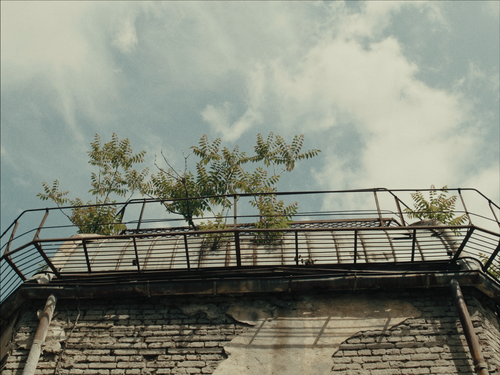
This year, however, the Excursion section is dedicated to the new generation of Romanian authors who, like their predecessors of the Romanian new wave, are making their way into the international festival circuit. A big space will be given to the works produced by UNATC (National film and theatre university “I. L. Caragiale” – Bucharest). The projections will begin with Vreau să sparg sera (I Want to shatter the Greenhouse), the master degree short of Teona Galgoțiu, a filmmaker that has developed a production based on family relationships and traumas, themes that here are explored through the lens of domestic violence. Teona Galgoțiu, winner of the Gopo award in 2023 for Vreau să sparg sera (I Want to shatter the Greenhouse), will be our guest together with Andreea Chiper, another young student from UNATC. Andreea Chiper deals with documentary cinema and explores it in its forms linked to memory and archives. Her video essay, Dansez şi eu la nunta părinţilor mei (Dancing at my parents’ wedding), will take the audience on an investigation that sees the director dig into her parents’ past by breaking down, reassembling and analyzing the images contained in their wedding tape. It will also be screened Degete de sticlă (Glass fingers), the animated short by Alina Gheorghe that tells the story of an artist and her relationship with her artistic works, created by using her own flesh. In addition to the UNATC’s production, it will also be screened the short film Cadoul de crăciun (The christmas gift) realized by Bogdan Mureşanu for Kinotopia with the support of the CNC (Romanian film centre). The film, realistic and surreal at the same time, deals with the past of the socialist Romania, bringing to light the psychotic climate that the dictatorship had brought to the country. This short film was a starting point for the realization of Anul nou care n-a fost (The new year that never came), winner of the section Orizzonti at the 2024 Venice film festival.
Antonio Dagostin
Footnotes
1. Dominique Nasta, Contemporary Romanian Cinema: The History of an Unexpected Miracle, Columbia University Press, New York 2013, p. 140
2. Ibidem
3. Ivi, p, 141
4. Lucian Boia, Strania istorie a comunismului românesc (şinefericitele ei consecinţe), Humanitas, Bucarest 2016, p. 194
5. Dominique Nasta, Contemporary Romanian Cinema: The History of an Unexpected Miracle, cit. p. 144
6. Ivi, p. 145
7. Ivi, p. 147
Films
Vreau să sparg sera / I Want to Shatter the Greenhouse
T. Galgoțiu, UNATC, 20 min, 2022
9. 10. 2024, Kulturni dom Nova Gorica (Nova Gorica) at 18:00
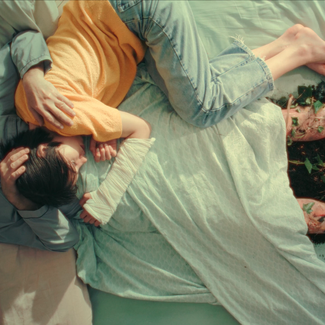
Dansez şi eu la nunta părinţilor mei / Dancing at My Parents’ Wedding
A. Chiper, UNATC, 22 min, 2023
9. 10. 2024, Kulturni dom Nova Gorica (Nova Gorica) at 18:00
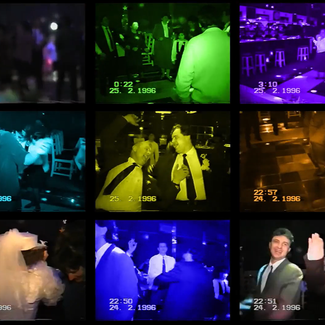
Degete de sticlă / Glass Fingers
A. Ghoerghe, UNATC, 7 min, 2022
9. 10. 2024, Kulturni dom Nova Gorica (Nova Gorica) at 18:00
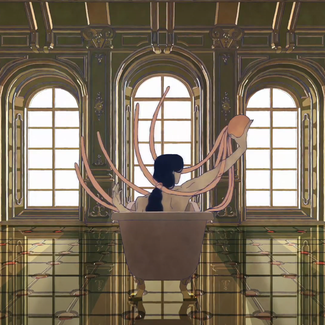
Cadoul de crăciun / The Christmas Gift
B. Mureşanu, Kinotopia, 23 min, 2018
9. 10. 2024, Kulturni dom Nova Gorica (Nova Gorica) at 18:00
